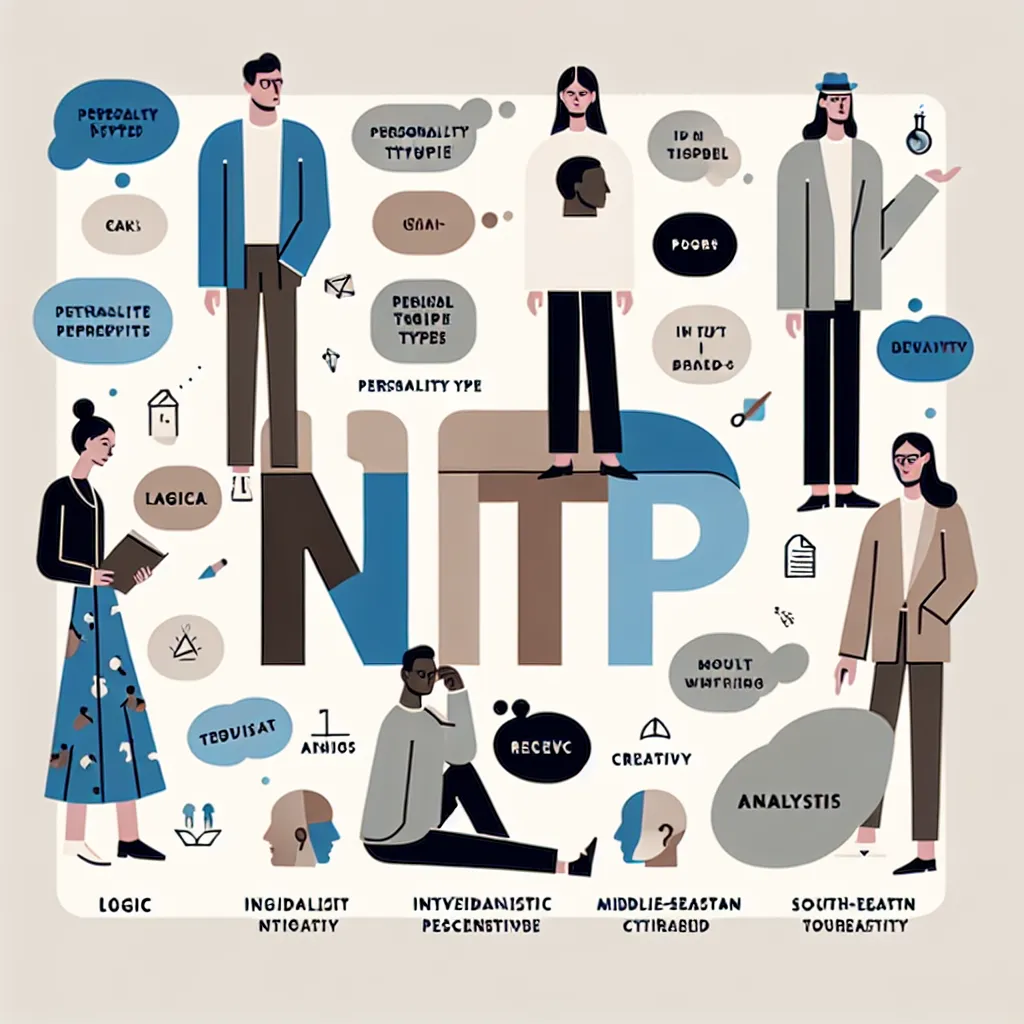The INTP personality type, an acronym derived from Carl Gustav Jung’s typological theories, stands for Introversion, Intuition, Thinking, and Perceiving. Represented as one of the rarer personality types within the Myers-Briggs Type Indicator (MBTI) framework, INTPs are known for their relentless intelligence, insatiable curiosity, and innovative thinking. The enigmatic INTPs, often referred to as the architects or the logicians, present a unique blend of traits that allow them to navigate various aspects of life in unconventional ways. This article delves into the fascinating world of the INTP personality type, uncovering insights into their cognitive functions, strengths, weaknesses, and how they interact with the world around them.
At the heart of the INTP personality is their dominant function: Introverted Thinking (Ti). This cognitive process is responsible for their analytical and abstract thinking. INTPs have an inherent ability to identify patterns and dissect complex ideas to understand the underlying principles. They thrive on building systems and models in their minds, often leading to innovative solutions and theories. Their unwavering quest for logical coherence enables them to become pioneers in disciplines that require deep analytical skills, such as mathematics, computer science, and engineering.
Complementing their Ti is the auxiliary function, Extraverted Intuition (Ne). This function fuels the breadth of their intellectual pursuits, allowing them to see a world of possibilities and alternative viewpoints. It is the driving force behind the INTP’s penchant for exploring ideas that may seem unconnected, giving them a unique edge when it comes to creativity and problem-solving. Thanks to their Ne, INTPs are known to have varied interests, which often translate into a jack-of-all-trades kind of expertise.
While their dominant and auxiliary functions serve as their intellectual spearheads, INTPs also possess Introverted Sensing (Si) and Extraverted Feeling (Fe) as their tertiary and inferior functions, respectively. The Si provides a sense of internal balance and reference to past experiences, allowing INTPs to draw on historical data when evaluating the present. However, it is less developed than Ti and Ne, meaning that INTPs might not be as detail-oriented or organized as other types. Their Fe, despite being their weakest function, gives them a latent ability to empathize and connect with others on an emotional level, even though this might not come naturally to them.
One of the most striking strengths of the INTP personality is their independent thought. They do not simply accept information at face value, preferring to build their understanding from scratch. This makes them excellent critical thinkers, skeptics, and analysts. Their objective approach to problems ensures that they remain unbiased and unaffected by emotional considerations which can cloud judgment.
Nevertheless, the INTP’s strengths can also morph into weaknesses. Their pursuit of logical consistency can sometimes make them appear detached or overly critical to those not used to their level of analysis. Their emphasis on objective reasoning might also make it difficult for them to navigate emotionally charged situations effectively. Additionally, INTPs can become so engrossed in their theoretical world that they may neglect practical considerations, such as routine responsibilities or maintaining personal relationships.
In professional settings, INTPs shine in roles that allow them autonomy and the freedom to explore and innovate. Their dislike for routine and disdain for micromanagement means they work best in environments that respect their need for intellectual space. Careers in research, technology, academia, or any field where they can apply their analytical capabilities to complex problems are highly suitable for the INTP personality type.
In terms of relationships, INTPs often look for partners who can match their mental vigor. Intellectual stimulation is key to an INTP’s heart, and they value partners who appreciate their unconventional nature. They are typically laid-back and flexible, offering a non-judgmental ear and endless curiosity about their partner’s thoughts and ideas. However, their struggle with emotional expressiveness can sometimes create barriers in forming deep emotional bonds and needs to be consciously worked on.
Personal growth for an INTP involves embracing their less developed functions, such as Fe, to become more attuned to the emotional aspects of life. Acknowledging the importance of social connections and the feelings of others, as well as fine-tuning their organizational skills and attention to detail, can significantly enhance an INTP’s overall life experience.
When it comes to teamwork, INTPs are valuable assets provided their contributions are respected and their need for independence is not stifled. Their ability to identify unconventional solutions can lead teams towards innovative directions. However, it is essential for team members and leaders to understand the INTP’s working style and communication preferences to foster a collaborative environment.
It’s important to remember that INTPs, while sharing common traits, are individuals with their unique blend of experiences, values, and personal development levels. These variations can influence how they express their personality type traits, which is why it’s essential not to paint all INTPs with the same brush.
Understanding INTPs means appreciating their innate drive for knowledge and their uncompromising commitment to logic. Whether in personal, professional, or social contexts, INTPs enrich the tapestry of human diversity with their inventive minds and quest for understanding. By fostering environments where they can thrive, we empower these brilliant architects to not only contemplate the world’s complexities but also to construct the solutions that will push humanity’s collective knowledge forward.



Leave a Comment